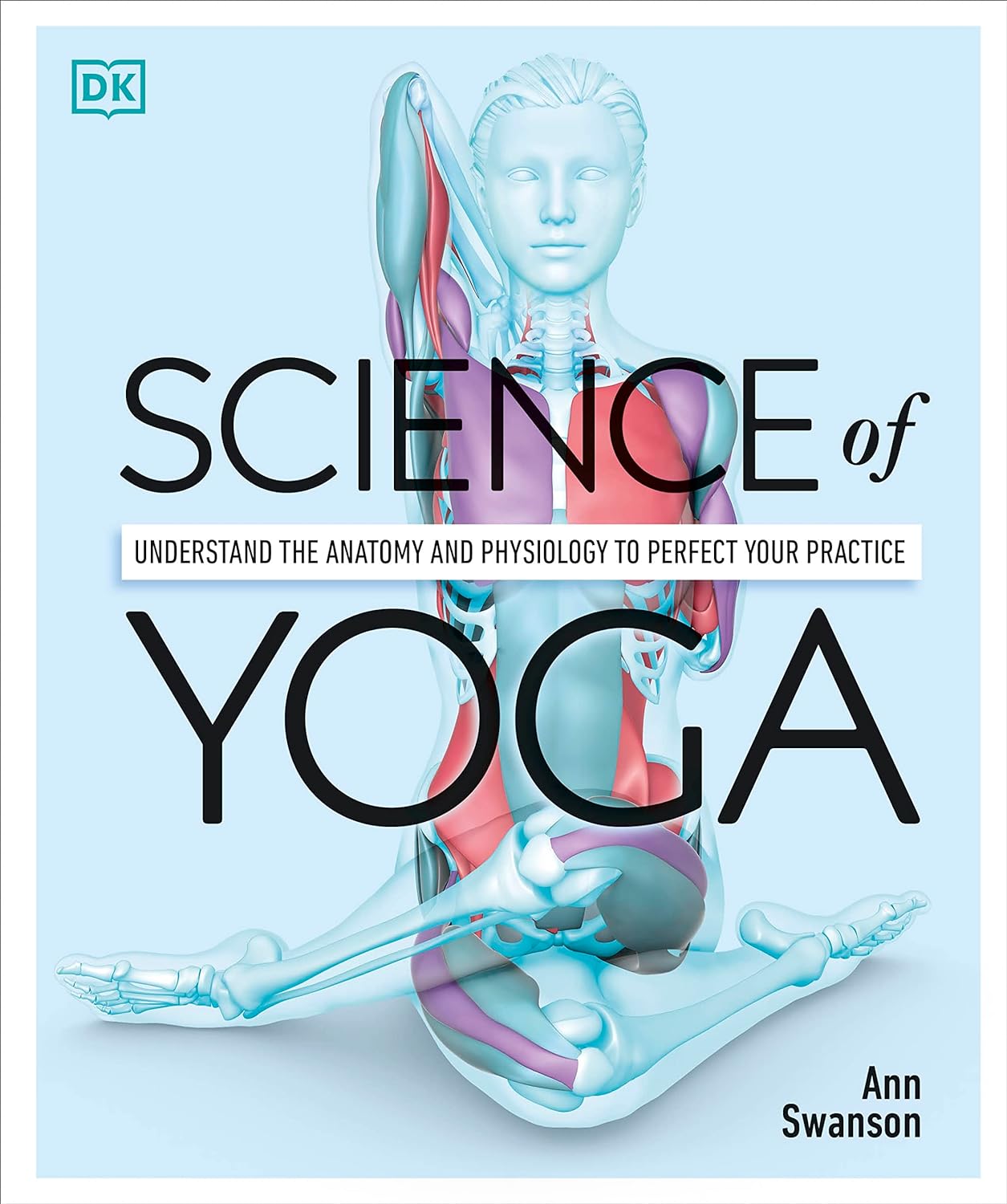Mind-Body Harmony: The Connection between Yoga and Mental Health

Before diving in, please note: This post is for informational purposes only. If you’d like to know more about how we approach topics, feel free to check out our friendly Disclaimer Page.
Hey there, amazing readers! 🖐️ Just a quick note: yes, we know there are a lot of ads here. Trust us, we get it—it’s not the prettiest look, but they help us keep this blog alive and kicking. Those pesky little ads cover the costs of all the behind-the-scenes magic, from hosting and tech stuff to creating content we hope you’ll love.
We’re committed to delivering quality posts, and your support (even just sticking around despite the ads) means everything to us. So, bear with us, and thanks for helping us keep the good vibes rolling. Now, on to the fun stuff! 😉
TRANSLATE BUTTON AT THE END OF THE ARTICLE
Introduction: Mind-Body Harmony and Mental Health
Mind-body harmony refers to the interconnectedness between one’s mental and physical well-being.
It recognizes the profound impact our mental state can have on our physical health and vice versa.
When it comes to mental health, finding ways to achieve balance and harmony between the mind and body is crucial.
One powerful practice that has been proven to promote this harmony is yoga.
Yoga is an ancient practice that originated in India thousands of years ago.
It combines physical postures, breathing exercises, meditation, and mindfulness to promote overall well-being.
While yoga is often associated with physical fitness, its benefits extend far beyond the physical realm.
The practice of yoga has been shown to have a profound impact on mental health, providing a holistic approach to achieving emotional balance and stability.
Understanding Yoga’s Role in Mental Well-being
Yoga’s role in mental well-being stems from its ability to cultivate mindfulness, promote relaxation, and reduce stress.
The practice of mindful awareness during yoga helps individuals become more present and attuned to their body and mind.
This heightened awareness allows them to observe and manage their thoughts and emotions with greater clarity and control.
Moreover, the physical aspect of yoga, including the various postures and movements, helps release tension and increase the production of endorphins, the body’s natural feel-good chemicals.
These endorphins, in turn, contribute to a sense of well-being and reduce symptoms of anxiety, depression, and other mental health disorders.
The Science behind the Mind-Body Connection
The mind-body connection is not merely a philosophical concept; it is rooted in scientific evidence.
Research has shown that our thoughts and emotions can have a direct impact on our physical health.
For example, chronic stress can lead to the release of stress hormones, which, when consistently elevated, can contribute to a range of physical health problems.
Yoga helps bridge the gap between the mind and body by activating the body’s relaxation response.
This response triggers a decrease in heart rate, blood pressure, and stress hormone levels.
In turn, this leads to a decrease in anxiety, tension, and other symptoms associated with mental health disorders.
Furthermore, studies have shown that regular yoga practice can actually alter the brain’s structure and function.
Areas of the brain associated with stress, anxiety, and emotional regulation, such as the amygdala and prefrontal cortex, show increased activity and connectivity in individuals who practice yoga regularly.
These findings provide scientific support for the positive impact of yoga on mental well-being.
How Yoga Promotes Emotional Balance and Stability
Emotional balance and stability are crucial components of mental well-being.
Yoga can help foster emotional balance by providing a safe and supportive environment to explore and process emotions.
The practice encourages individuals to acknowledge and accept their emotions without judgment, allowing for greater emotional awareness and self-regulation.
Additionally, yoga offers tools and techniques to manage emotional distress effectively.
Deep breathing exercises, for example, activate the body’s relaxation response and help individuals calm their nervous system.
By focusing on the breath, individuals can shift their attention away from overwhelming thoughts and emotions, promoting a sense of calm and stability.
The combination of physical movement, breathwork, and mindfulness in yoga also helps release emotional tension stored in the body.
Through gentle stretching and mindful movement, individuals can release stagnant energy and promote emotional release, creating a sense of balance and ease.
Yoga and Stress Reduction: A Resilience-building Tool
Stress is a common aspect of modern life and can have a detrimental impact on mental health.
Yoga offers a powerful tool for stress reduction, helping individuals build resilience and cope with life’s challenges more effectively.
The physical practice of yoga, which involves stretching and strengthening the body, stimulates the parasympathetic nervous system, responsible for the body’s rest and digest response.
This activation promotes relaxation and counters the effects of chronic stress.
Yoga also incorporates breathwork techniques, such as deep belly breathing, that help regulate the autonomic nervous system and reduce the body’s stress response.
By practicing these techniques regularly, individuals can develop greater resilience to stress and experience increased emotional well-being.
Harnessing Yoga for Anxiety and Depression
Anxiety and depression are two of the most common mental health disorders worldwide.
Traditional treatment approaches often involve medication and therapy, but yoga can be a valuable complementary tool in managing these conditions.
Yoga helps alleviate anxiety by activating the body’s relaxation response and promoting a sense of calm.
The practice teaches individuals to become more aware of their anxious thoughts and sensations and provides techniques to ground themselves in the present moment, reducing the grip of anxious thinking patterns.
For individuals with depression, yoga can provide a much-needed boost in mood and energy levels.
The physical movement and deep breathing associated with yoga increase blood flow and oxygenation, leading to an uplifted mood.
Additionally, the mindfulness aspect of yoga helps individuals cultivate a positive mindset and enhance self-compassion, crucial elements in managing depression.
Exploring Yoga’s Impact on Mood Disorders
Mood disorders, such as bipolar disorder, can significantly impact an individual’s emotional well-being and stability.
While yoga is not a substitute for medical treatment, it can serve as a complementary practice to help individuals manage their mood disorder symptoms.
Yoga’s emphasis on mindfulness can be particularly beneficial for individuals with mood disorders.
By cultivating present-moment awareness, individuals can better recognize and manage mood swings, allowing for greater emotional stability.
Furthermore, the physical practice of yoga can provide an outlet for pent-up or excessive energy often associated with mood disorders.
Engaging in gentle movement and breathwork helps individuals channel their energy in a productive and positive way, promoting overall mood regulation.
Yoga Therapy: A Holistic Approach to Mental Health
Yoga therapy is an emerging field that integrates the principles and techniques of yoga with evidence-based therapeutic practices.
It takes a holistic approach to mental health, recognizing the interconnectedness of the mind, body, and spirit.
Yoga therapists work with individuals to develop personalized yoga practices tailored to their specific mental health needs.
These practices may include physical postures, breathwork, meditation, and relaxation techniques.
In conjunction with traditional therapy, yoga therapy can enhance the effectiveness of treatment and provide individuals with additional tools for self-care and self-regulation.
Yoga as a Complementary Treatment for PTSD
Post-Traumatic Stress Disorder (PTSD) is a mental health condition that can occur following a traumatic event.
It is characterized by symptoms such as flashbacks, nightmares, hypervigilance, and avoidance behaviors.
Yoga has shown promise as a complementary treatment for individuals with PTSD.
The gentle, controlled movements and focus on breath awareness in yoga help individuals with PTSD reconnect with their bodies and regain a sense of safety and control.
Yoga also promotes relaxation and reduces hyperarousal symptoms, such as heightened anxiety and irritability.
Additionally, the mindfulness aspect of yoga enables individuals to process and integrate traumatic experiences in a safe and supportive environment.
By cultivating present-moment awareness, individuals can gradually reduce the impact of traumatic memories and develop healthier coping mechanisms.
Yoga for Sleep Disorders: Enhancing Restfulness
Sleep disorders, such as insomnia, can have a significant impact on mental health and overall well-being.
Yoga can be a valuable tool in enhancing sleep quality and promoting restfulness.
The relaxation techniques practiced in yoga, such as deep breathing and progressive muscle relaxation, help calm the nervous system and prepare the body for sleep.
These techniques can be practiced before bedtime to induce relaxation and facilitate a more restful sleep.
Additionally, certain yoga postures, such as gentle forward bends and restorative poses, can help release physical tension and promote relaxation.
By incorporating these postures into a bedtime routine, individuals can create a more conducive environment for sleep.
Yoga’s Positive Effects on Cognitive Function
Cognitive function encompasses various mental processes, such as memory, attention, and problem-solving.
Yoga has been shown to have positive effects on cognitive function, enhancing mental clarity and improving overall cognitive performance.
Regular yoga practice increases blood flow to the brain, delivering essential nutrients and oxygen.
This increased blood flow is associated with improved cognitive function, including enhanced memory and concentration.
Moreover, yoga’s emphasis on mindfulness and present-moment awareness improves attention and focus.
By training the mind to stay present and avoid distraction, individuals can enhance their cognitive abilities and reduce cognitive decline associated with aging.
Conclusion: Harnessing the Power of Yoga for Mental Health
Yoga offers a powerful and holistic approach to mental health and emotional well-being.
Through its combination of physical movement, breathwork, mindfulness, and relaxation techniques, yoga promotes mind-body harmony and helps individuals achieve emotional balance and stability.
By incorporating yoga into their daily routine, individuals can experience the numerous benefits it offers, such as stress reduction, enhanced emotional regulation, improved sleep, and cognitive function.
Whether practiced independently or in conjunction with traditional therapies, yoga has the potential to significantly improve mental health and contribute to overall well-being.
So, take a deep breath, roll out your mat, and embark on a journey towards greater mind-body harmony through the transformative practice of yoga.

The Enlightenment Journey is a remarkable collection of writings authored by a distinguished group of experts in the fields of spirituality, new age, and esoteric knowledge.
This anthology features a diverse assembly of well-experienced authors who bring their profound insights and credible perspectives to the forefront.
Each contributor possesses a wealth of knowledge and wisdom, making them authorities in their respective domains.
Together, they offer readers a transformative journey into the realms of spiritual growth, self-discovery, and esoteric enlightenment.
The Enlightenment Journey is a testament to the collective expertise of these luminaries, providing readers with a rich tapestry of ideas and information to illuminate their spiritual path.
Our Diverse Expertise 🌟
While our primary focus is on spirituality and esotericism, we are equally passionate about exploring a wide range of other topics and niches 🌍📚. Our experienced team is dedicated to delivering high-quality, informative content across various subjects ✨.
To ensure we provide the most accurate and valuable insights, we collaborate with trusted experts in their respective domains 🧑🏫👩🏫. This allows us to offer well-rounded perspectives and knowledge to our readers.
Our blog originally focused on spirituality and metaphysics, but we’ve since expanded to cover a wide range of niches. Don’t worry—we continue to publish a lot of articles on spirituality! Frequently visit our blog to explore our diverse content and stay tuned for more insightful reads.





